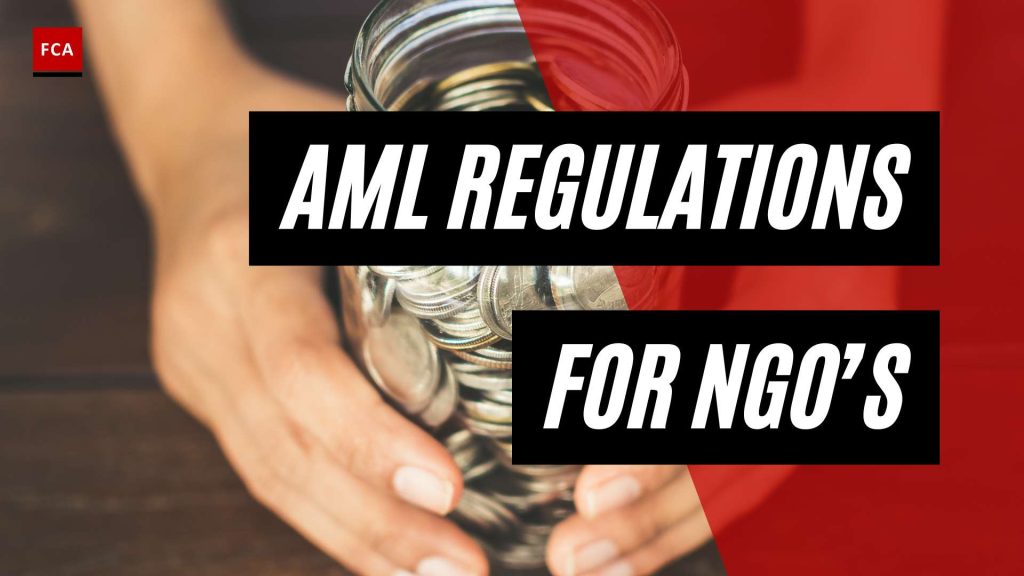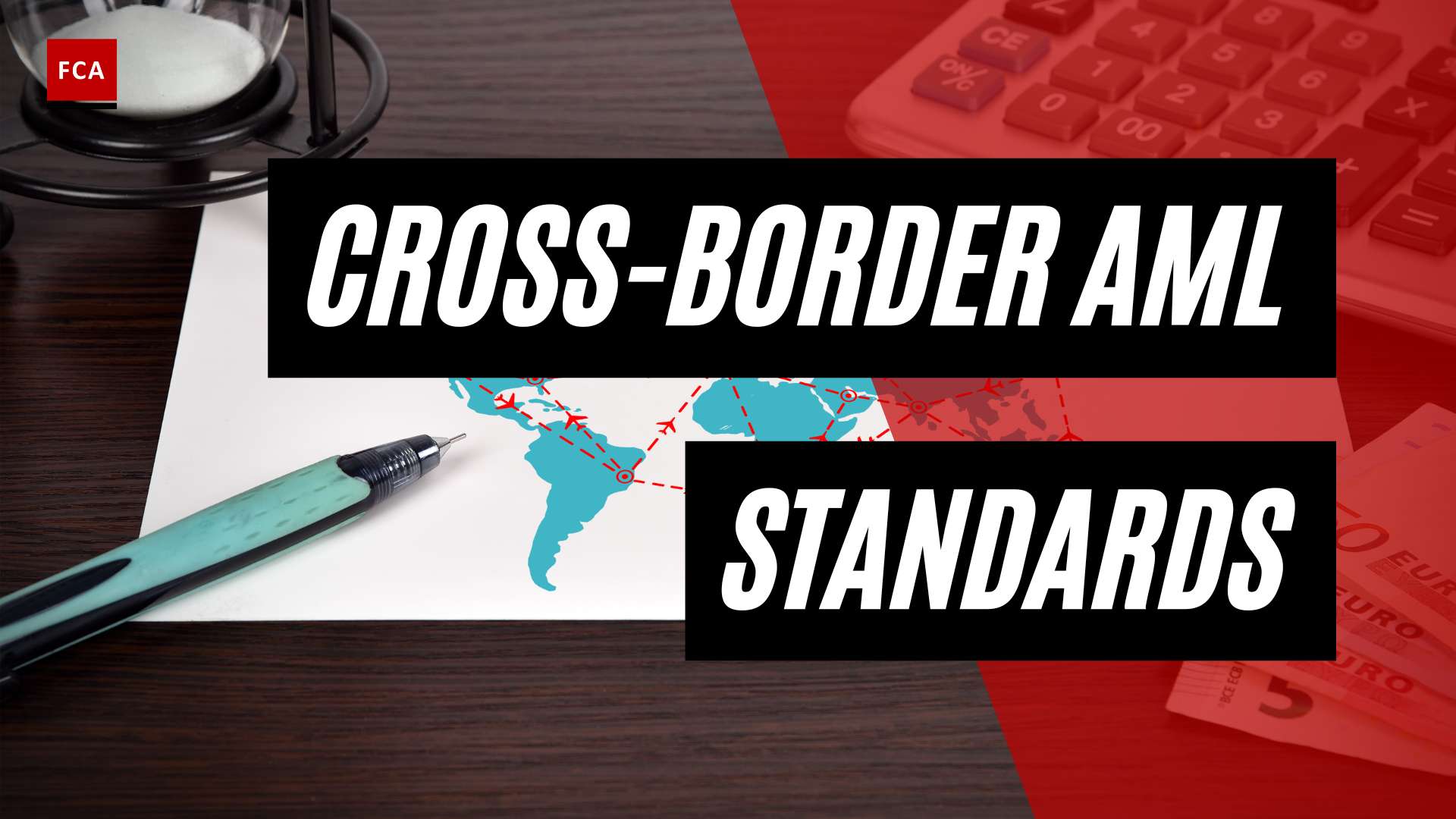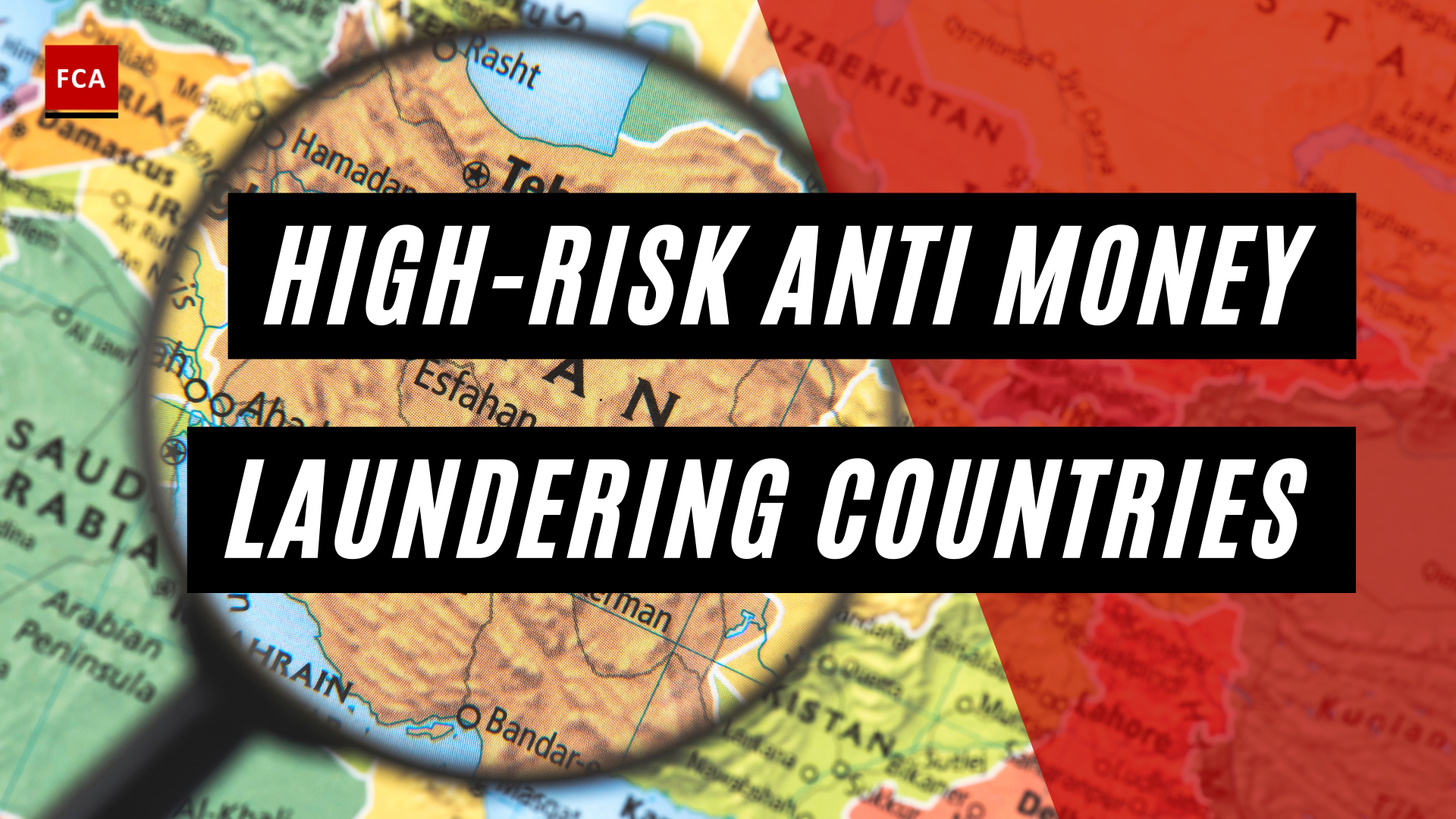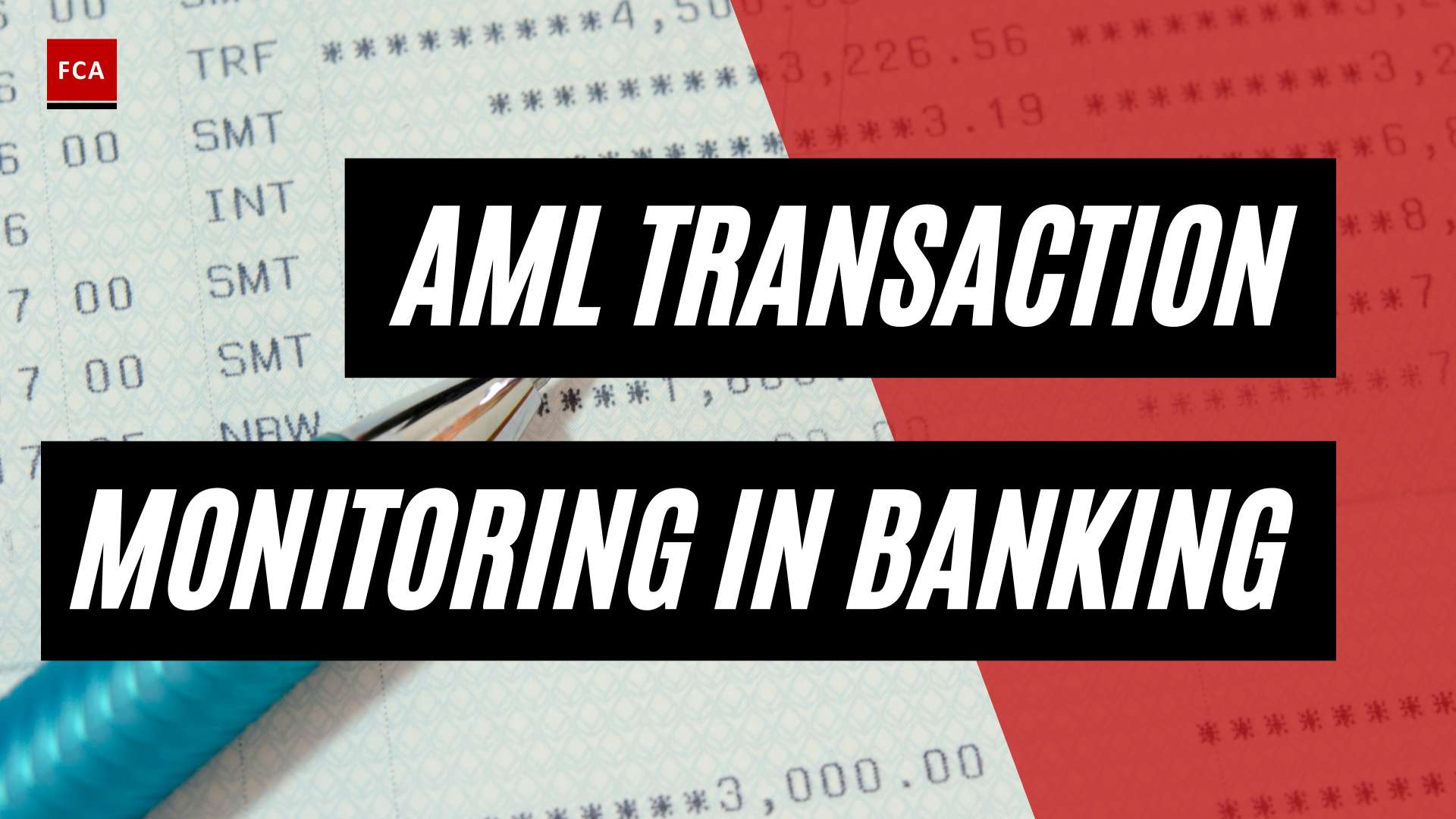AML Compliance for Charities and NGOs
Ensuring compliance with Anti-Money Laundering (AML) regulations is essential for charities and non-governmental organizations (NGOs) to protect their integrity, reputation, and financial systems. Understanding the AML regulations that apply to charities is crucial in maintaining transparency and preventing illicit financial activities.
Understanding AML Regulations for Charities
Charities are not exempt from AML regulations. In fact, due to their non-profit nature and potential vulnerabilities, they are considered high-risk entities in terms of financial crime. Charities operating on a global scale are particularly susceptible to risks such as bribery, corruption, terrorist funding, money laundering, and sanctions/export restrictions (Sanction Scanner). Implementing effective policies, procedures, and due diligence processes to identify, monitor, and report suspicious activities is vital for charities to mitigate these risks.
Charities must comply with specific responsibilities imposed by the Charity Commission registration, legal obligations, and financial crime laws. These responsibilities include having comprehensive financial crime strategies, policies, and operational frameworks in place to address operational risks and ensure compliance with the law (Sanction Scanner). By adhering to AML regulations, charities demonstrate their commitment to transparency, accountability, and ethical practices.
Importance of AML Compliance for Charities
Non-compliance with AML regulations can have severe consequences for charities. Legal consequences, including regulatory penalties, reputational harm, and donor funding withdrawal, can significantly impact a charity’s ability to carry out its objectives. Financial services interruption and limitations on international transactions may further hinder their operations.
Moreover, trustees and board members can face personal liability if they fail to fulfill their AML obligations. It is crucial for charity leadership to understand the risks associated with financial crime and actively participate in compliance efforts. By prioritizing AML compliance, charities can safeguard their reputation, protect their funding sources, and maintain public trust.
To ensure AML compliance, charities should implement robust compliance programs tailored to their specific risk profiles and operational needs. This includes adopting a risk-based approach, conducting due diligence and vetting procedures, and collaborating with financial institutions to mitigate financial crime risks. Regular independent reviews and audits also play a vital role in assessing the effectiveness of AML controls and identifying areas for improvement.
By understanding and adhering to AML regulations, charities can actively contribute to global efforts in combating financial crime while safeguarding their own operations. The implementation of comprehensive AML programs helps charities maintain their integrity, transparency, and commitment to their missions.
AML Risks for Charities
Charities and non-governmental organizations (NGOs) face unique risks when it comes to anti-money laundering (AML) compliance. Understanding these vulnerabilities and financial crime risks is essential for organizations in the sector. Additionally, collaboration with financial institutions plays a significant role in managing these risks effectively.
Vulnerabilities and Financial Crime Risks
Charities that operate on a global scale are vulnerable to various financial crimes, including bribery, corruption, terrorist funding, money laundering, and sanctions/export restrictions. These risks can have severe consequences, such as legal repercussions, reputational harm, regulatory penalties, withdrawal of donor funding, and interruption of financial services. Such outcomes can significantly impact an organization’s ability to fulfill its objectives.
Money Laundering Threats for Charities
Money laundering is a significant global threat that affects financial systems and institutions, including charities. Due to their non-profit nature and sometimes weaker regulatory frameworks, charities can be particularly vulnerable to money laundering activities. Implementing effective AML policies, procedures, and due diligence processes is crucial for charities to identify, monitor, and report suspicious activities, thereby mitigating the risk of money laundering (Sanction Scanner).
Collaboration with Financial Institutions
Financial institutions play a collaborative role in combating financial crime alongside charities, governments, and regulators. Banks, in particular, are required to conduct due diligence processes on their customers, including charities. Charities operating globally or in high-risk nations may be subjected to enhanced due diligence requirements. This often involves evaluating the governance rules and processes in place to control financial crime risks. By working closely with financial institutions, charities can benefit from their expertise and guidance in meeting compliance obligations.
To effectively manage AML risks, charities must have comprehensive financial crime strategies, policies, and operational frameworks in place. These strategies should address operational risks specific to the organization and ensure compliance with applicable laws and regulations. By implementing risk-based procedures, charities can conduct due diligence on individuals and firms they interact with. The depth and extent of due diligence should correspond to the level of risk involved, allowing organizations to gather sufficient information about donors, beneficiaries, workers, volunteers, and other connected entities.
Building an Effective AML Program
To ensure compliance with Anti-Money Laundering (AML) regulations, charities must establish and maintain an effective AML program. This program should include specific components that address the unique compliance obligations and risks faced by charities.
Compliance Obligations for Charities
Charities have specific responsibilities imposed by regulatory bodies and financial crime laws. The Charity Commission registration, legal obligations, and financial crime laws require charities to have comprehensive financial crime strategies, policies, and operational frameworks in place to address operational risks and ensure compliance with the law. These obligations aim to prevent charities from being exploited for money laundering or terrorist financing activities.
Charities should establish AML policies and procedures that outline their commitment to AML compliance. These policies should cover areas such as due diligence, risk assessment, reporting suspicious activities, and employee training. By clearly defining these policies, charities can ensure that all staff members understand their obligations and the steps to be taken to comply with AML regulations.
Risk-Based Approach to AML Compliance
Implementing a risk-based approach is essential for charities to effectively address AML risks. Charities must conduct a comprehensive risk assessment to identify, assess, and understand the specific money laundering and terrorist financing risks they face. This risk assessment should consider factors such as the charity’s location, activities, funding sources, and types of services provided. By understanding the risks, charities can allocate resources and implement appropriate controls that are commensurate with the level of risk.
Charities should develop risk-based procedures to gather sufficient information about donors, beneficiaries, workers, volunteers, and other connected entities. Conducting due diligence on individuals and firms with whom the charity conducts business is crucial to mitigate financial crime risks (Sanction Scanner). The level of due diligence should correspond to the level of risks involved. Implementing these procedures ensures that charities have the necessary information to make informed decisions and identify potential red flags.
Due Diligence and Vetting Procedures
Charities must establish due diligence and vetting procedures when accepting donations or establishing partnerships. These procedures help ensure the legitimacy of the funds received and the integrity of the relationships formed. Conducting background checks on potential donors and partners is an essential component of these procedures, allowing charities to mitigate the risks of illicit financial activities.
By implementing comprehensive due diligence and vetting procedures, charities can verify the source of funds and minimize the risk of inadvertently facilitating money laundering or terrorist financing activities. These procedures should be tailored according to the charity’s risk assessment, ensuring that the level of due diligence aligns with the identified risks.
By building an effective AML program that includes compliance obligations, a risk-based approach to AML compliance, and due diligence and vetting procedures, charities can enhance their ability to detect and prevent illicit financial activities. Implementing such a program demonstrates a commitment to AML compliance and helps protect the reputation and mission of the charity.
AML Regulations for Charities in Different Countries
To effectively navigate AML compliance, it’s crucial for charities to understand the specific regulations that apply to them in different countries. In this section, we will explore AML regulations for charities in the United Kingdom, Ireland, and Canada.
AML Regulations for Charities in the UK
Charities in the United Kingdom are subject to stringent anti-money laundering (AML) regulations under the Money Laundering, Terrorist Financing and Transfer of Funds (Information on the Payer) Regulations 2017 (the “MLR”) (Kingsley Napley). Non-compliance with these regulations can result in severe penalties, including fines of up to £1 million or 5% of annual turnover (whichever is higher) for breach of the MLR. In severe cases, individuals involved in money laundering for charities can face imprisonment sentences.
To ensure compliance, charities in the UK should implement robust compliance programs that include conducting due diligence on donors and beneficiaries, training staff, and maintaining strong record-keeping practices. The Charity Commission for England and Wales can use statutory powers to investigate and take regulatory action against charities suspected of money laundering activities. It is crucial for charity trustees to actively monitor and oversee the charity’s activities, conduct risk assessments, and implement appropriate safeguards to prevent money laundering within the organization.
AML Regulations for Charities in Ireland
Charities in Ireland have obligations under the Criminal Justice (Money Laundering and Terrorist Financing) Act 2010 (the “CJA”), as amended, which falls under the remit of the Minister for Justice and Equality (Charities Regulator). Designated charities must register with the Charities Regulator and provide their Registered Number to their bank or other financial institution for AML/CTF purposes.
To address the risk of charities being used as conduits for money laundering or terrorist financing, robust AML/CTF measures are necessary. Boards of charities must take responsibility for ensuring that their charity is not unwittingly involved in financial crime and must remain vigilant to prevent abuse. Designated charities are required to appoint a Money Laundering Reporting Officer (MLRO) to fulfill their obligations under the CJA (Charities Regulator).
AML Regulations for Charities in Canada
In Canada, the compliance program requirements under the Proceeds of Crime (Money Laundering) and Terrorist Financing Act (PCMLTFA) and associated regulations apply to all reporting entities, including charities (source). Charities must implement robust AML procedures to fulfill their obligations under the PCMLTFA.
To ensure AML compliance, charities in Canada should conduct appropriate due diligence and have effective vetting procedures in place. They should also establish risk-based AML programs that address the specific risks associated with their operations. It is crucial for charities to stay informed about changes in AML regulations and adapt their compliance programs accordingly.
By understanding and adhering to the AML regulations specific to their country, charities can effectively safeguard against money laundering risks and protect their organizations from potential legal consequences. Implementing robust compliance programs, engaging charity trustees in AML compliance efforts, and conducting independent reviews and audits are important steps in ensuring ongoing AML compliance for charities.
Consequences of Non-Compliance with AML Regulations
Failure to comply with Anti-Money Laundering (AML) regulations can have serious consequences for charities. It is crucial for organizations to understand and adhere to these regulations to mitigate potential risks. Non-compliance can result in legal consequences for charities as well as personal liability for trustees and board members.
Legal Consequences for Charities
Charities that fail to comply with AML regulations may face a range of legal consequences. These can include criminal liability for the organization, its officers, and staff. The severity of these consequences can vary depending on the jurisdiction and the nature of the non-compliance. Some potential legal consequences for non-compliant charities include:
-
Financial penalties: Regulatory authorities may impose significant fines on charities for breaches of AML regulations. In the UK, for example, fines can be as high as £1 million or 5% of annual turnover, whichever is higher. These financial penalties can have a significant impact on the organization’s resources and fundraising efforts.
-
Suspension of activities: Regulatory authorities have the power to suspend the activities of non-compliant charities. This can disrupt the organization’s operations and impact its ability to carry out its charitable mission.
-
Loss of charitable status: In severe cases of non-compliance, charities may face the loss of their charitable status. This can have far-reaching consequences, including the loss of tax benefits and government funding. It can also damage the organization’s reputation and erode public trust, making it more difficult to attract donors and support.
Personal Liability for Trustees and Board Members
The consequences of non-compliance with AML regulations for charities can extend to personal liability for trustees and board members. These individuals can face legal action, fines, disqualification from their roles, and even imprisonment if found to have been involved in money laundering or terrorist financing activities within the organization. It is essential for trustees and board members to understand their obligations and actively ensure compliance with AML regulations to protect themselves and the organization.
Charity trustees have a legal duty to comply with AML regulations in the jurisdictions where they operate. They are expected to carry out risk assessments, implement appropriate policies and procedures, conduct due diligence on donors and beneficiaries, and report suspicious activities. Failure to meet these obligations can result in regulatory action, fines, or imprisonment. Trustees play a crucial role in ensuring AML compliance by actively monitoring and overseeing the charity’s activities, conducting risk assessments, and implementing appropriate safeguards to prevent money laundering within the organization.
By understanding and addressing the legal consequences of non-compliance with AML regulations, charities can take proactive steps to ensure compliance and protect both the organization and its key stakeholders. Implementing robust AML programs, providing appropriate training, and conducting regular independent reviews and audits can help charities detect and mitigate potential risks, safeguard their operations, and maintain public trust.
Ensuring AML Compliance for Charities
To safeguard against the risks of money laundering and ensure compliance with Anti-Money Laundering (AML) regulations, charities must implement robust compliance programs. These programs play a crucial role in mitigating the potential misuse of their funds and resources. Let’s explore three key aspects of ensuring AML compliance for charities: implementing robust compliance programs, the role of charity trustees, and the importance of independent reviews and audits.
Implementing Robust Compliance Programs
Charities should establish and implement comprehensive compliance programs to guard against money laundering risks. These programs should include various measures such as conducting due diligence on donors and beneficiaries, training staff on AML procedures, and maintaining strong record-keeping practices (Kingsley Napley). By implementing these programs, charities can identify and address potential vulnerabilities and ensure compliance with AML regulations.
Compliance programs should cover the following key areas:
-
Risk Assessment: Charities should conduct comprehensive risk assessments to identify potential money laundering risks specific to their operations. This assessment should take into account factors such as the nature of the charity’s work, the regions it operates in, and the types of transactions it engages in.
-
Policies and Procedures: Charities should develop and implement clear AML policies and procedures. These policies should outline the steps to be taken for conducting due diligence on donors and beneficiaries, risk-based transaction monitoring, and reporting suspicious activities to the appropriate authorities.
-
Training and Awareness: It is essential to ensure that employees and volunteers are adequately trained on AML procedures and are aware of their responsibilities in preventing money laundering within the charity. Regular training sessions and updates can help keep the entire organization informed and vigilant.
-
Record-keeping: Robust record-keeping practices are crucial for AML compliance. Charities should maintain accurate and up-to-date records of all transactions, including details of donors, beneficiaries, and the purpose of funds.
Role of Charity Trustees in AML Compliance
Charity trustees play a vital role in ensuring AML compliance. They have a legal obligation to act in the best interests of the charity and protect its assets. Trustees should take an active role in overseeing the charity’s AML compliance program.
Key responsibilities of charity trustees include:
-
Oversight: Trustees should provide oversight and guidance to ensure the effective implementation of the charity’s compliance program. This involves regularly reviewing and monitoring the program’s effectiveness and making necessary improvements.
-
Policy Approval: Trustees should review and approve the charity’s AML policies and procedures, ensuring they align with applicable regulations and industry best practices.
-
Reporting: Trustees should receive regular reports on the charity’s AML activities, including suspicious activity reports and updates on compliance efforts. They should also ensure that any identified issues or concerns are appropriately addressed.
Independent Reviews and Audits
To validate the effectiveness of their AML compliance programs, charities should consider conducting independent reviews and audits. These reviews can provide an unbiased assessment of the charity’s AML controls and identify any areas for improvement. Independent auditors or compliance experts can evaluate the charity’s policies, procedures, and internal controls to ensure they meet regulatory requirements and industry standards.
By conducting independent reviews and audits, charities can demonstrate their commitment to maintaining robust AML practices and address any weaknesses in their compliance programs proactively.
Ensuring AML compliance for charities requires a proactive approach. By implementing robust compliance programs, involving charity trustees in the process, and conducting independent reviews and audits, charities can minimize the risk of money laundering and protect their reputation and integrity.








